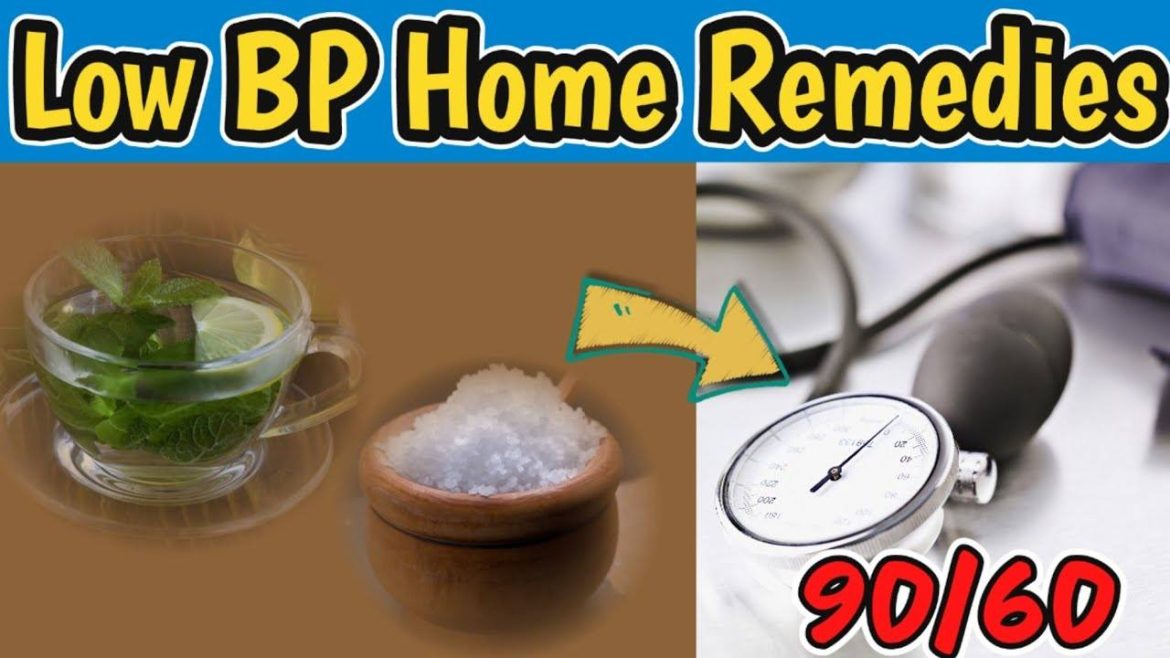Persistent low blood pressure, also known as hypotension, can be a concerning condition that affects individuals differently. While occasional low blood pressure readings are often harmless, persistent hypotension may indicate underlying health issues that require attention. Understanding the causes can help in diagnosing and managing this condition effectively.
7 Main Causes of Persistent Low Blood Pressure
1. Dehydration
One of the most common causes of temporary low blood pressure is dehydration. When the body lacks adequate fluid levels, blood volume decreases, leading to a drop in blood pressure. Chronic dehydration can exacerbate this condition, causing persistent low blood pressure over time.
2. Heart Problems
Various heart conditions can contribute to persistent low blood pressure. These include:
Heart Valve Problems: Malfunctioning heart valves can disrupt blood flow, leading to lower blood pressure.
Heart Attack: Damage to the heart muscle from a heart attack can weaken the heart’s ability to pump blood effectively.
Heart Failure: In advanced stages, heart failure can reduce cardiac output, resulting in low blood pressure.
see also: 5 Typical Symptoms of Stress-Induced Hypertension
3. Endocrine Issues
Certain hormonal imbalances can affect blood pressure regulation:
Thyroid Problems: Both hyperthyroidism and hypothyroidism can disrupt the body’s metabolism and cardiovascular function, potentially leading to low blood pressure.
Addison’s Disease: A condition where the adrenal glands don’t produce enough hormones, including cortisol, can cause low blood pressure.
4. Neurological Disorders
Disorders that affect the autonomic nervous system, which controls involuntary functions like blood pressure regulation, can lead to persistent low blood pressure:
Multiple System Atrophy: A rare neurological disorder that impairs autonomic functions, including blood pressure regulation.
Parkinson’s Disease: Some individuals with Parkinson’s disease may experience orthostatic hypotension, where blood pressure drops significantly upon standing up.
5. Medications
Certain medications can lower blood pressure as a side effect:
Antihypertensives: Medications prescribed to manage high blood pressure can sometimes lower it excessively.
Diuretics: These drugs, used to treat conditions like heart failure and hypertension, can lead to dehydration and subsequent low blood pressure.
6. Nutritional Deficiencies
Lack of essential nutrients can impact cardiovascular health:
Vitamin B12 Deficiency: Plays a role in red blood cell production and nerve function; deficiency can lead to anemia and low blood pressure.
Folate Deficiency: Essential for DNA synthesis and cell growth; deficiency can also contribute to anemia and low blood pressure.
7. Other Conditions
Various other medical conditions can cause persistent low blood pressure:
Septic Shock: A severe infection that causes a drop in blood pressure.
Anaphylaxis: A severe allergic reaction that can lead to low blood pressure and shock.
Diabetes: Uncontrolled diabetes can affect blood vessel function and lead to fluctuations in blood pressure.
Conclusion
Persistent low blood pressure can significantly impact quality of life and may indicate underlying health problems that require medical attention. Identifying the root causes through thorough evaluation and diagnostic testing is crucial for effective management. Treatment often involves addressing the underlying condition, making lifestyle modifications, and sometimes, using medications to stabilize blood pressure levels. If you experience symptoms of persistent low blood pressure, such as dizziness, fainting, or fatigue, consulting with a healthcare professional is essential to determine the appropriate course of action. Early diagnosis and management can help improve outcomes and prevent complications associated with hypotension.
FAQs
What is the reason for continuous low BP?
Continuous low blood pressure can be attributed to various underlying factors:
Dehydration: Lack of adequate fluid intake can lead to reduced blood volume, causing a drop in blood pressure.
Heart Problems: Conditions such as heart valve problems, heart attack, or heart failure can reduce the heart’s ability to pump blood effectively, resulting in low blood pressure.
Endocrine Problems: Disorders such as adrenal insufficiency (Addison’s disease), thyroid disorders, or low blood sugar (hypoglycemia) can lead to low blood pressure.
Severe Infection (Septic Shock): Bacterial infections can cause a severe drop in blood pressure due to toxins released into the bloodstream.
Blood Loss: Significant loss of blood from trauma, internal bleeding, or surgery can result in dangerously low blood pressure.
Medications: Certain medications, including those used to treat hypertension, heart conditions, or depression, can lower blood pressure excessively.
Neurological Conditions: Disorders affecting the autonomic nervous system, such as Parkinson’s disease or multiple system atrophy, can disrupt blood pressure regulation.
What causes your blood pressure to be low all the time?
Chronic low blood pressure can be a result of:
Genetics: Some individuals may have naturally low blood pressure due to genetic factors.
Nutritional Deficiencies: Lack of essential nutrients like vitamin B12, folate, or iron can contribute to low blood pressure.
Prolonged Bed Rest: Extended periods of bed rest or a sedentary lifestyle can lead to deconditioning and lower blood pressure.
Pregnancy: Low blood pressure is common in the early stages of pregnancy due to hormonal changes.
Age: Blood vessels become less elastic with age, which can contribute to lower blood pressure in older adults.
What to do if your blood pressure stays low?
If you are experiencing consistently low blood pressure, here are some steps you can take:
Increase Fluid Intake: Ensure you are drinking enough water and electrolyte-rich fluids to maintain adequate blood volume.
Eat Small, Frequent Meals: Avoid large meals and opt for smaller, more frequent meals to help stabilize blood pressure.
Avoid Alcohol: Alcohol can lower blood pressure further, so limit or avoid alcohol consumption.
Wear Compression Stockings: These can help improve circulation and prevent blood from pooling in your legs.
Change Positions Slowly: Avoid sudden changes in position, such as standing up quickly from a sitting or lying down position, to prevent dizziness or lightheadedness.
Review Medications: If medications are contributing to low blood pressure, discuss potential alternatives with your healthcare provider.
Monitor Blood Pressure Regularly: Keep track of your blood pressure readings at home and report any significant changes to your healthcare provider.

